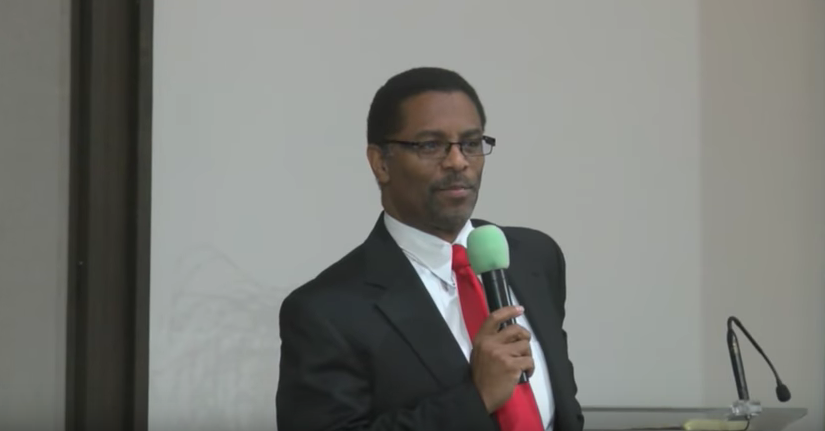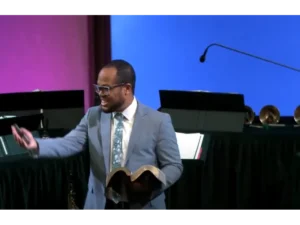On Sabbath we learned how the babe in the manger is about a God who solved a communication problem.
Rewind to Hebrews 1:1-3. This passage is the Ta Da! of scripture. The writer has chosen the finest language to express the greatest revelation of God to men. The two grand themes of this passage are 1) God is, and 2) God speaks. Everything else to come hangs on these affirmations.
God is what? Creator (Gen. 1:1); Provider (Matt. 5:45); Healer (Ex. 15:26); Sustainer (Acts 17:28); Redeemer (Isa. 43:1); and Love (1 John 4:8). That addresses the what, but why should we believe in Him? Because God speaks. He communicates. His speaking created the universe (Psalm 33:9).
God spoke throughout the entirety of scripture. But note how Hebrews 1:1 describes God’s speaking: “…at various times and in various ways…” From Genesis to Revelation God is not silent. He wants to have a conversation with His people. He can use a bush or a donkey or tablet of stone or a shepherds rod, but He can and does speak.
But for all God’s speaking, humanity didn’t understand. The message through the prophets was fragmented. But the final, best, most profound and complete revelation of God is this: “The Word became flesh!” (John 1:14) The writer to the Hebrews is letting us know that the Son is the ultimate expression of who God is. In Christ there is nothing more to say. It is God’s ultimate speech.
Ultimately the Babe in the manger says everything we need to know about God. From the cradle to the cross I hear that God is love, and I see that there is nothing He will not do to speak to me in language I can understand.
There’s something else this tells us about God. Though He is “immutable” (unchanging – see Mal. 3:6; Hebrews 13:8; James 1:17), The Babe proves that God does indeed change in the most profound way. In Jesus, God didn’t change the message, but rather, the language He was speaking. He changed not in essence, but in substance; not in function, but in form. The incarnation is the ultimate proof that God meets us where we are. And because He does, the Word is always relevant.
Had the eternal Word remained in heaven, the darkness would have continued unabated. But the unchangeable God changed–changed form, changed appearance, changed addresses, changed substance in order to bring light and life to men.
Here’s the point: If God can change His methods so radically to speak the language of the people who are in darkness, surely we can change our methods to do the same. The ministry of the church in the 21st century must continue to be flesh and dwell among the people so they can behold God’s glory.
The incarnation was risky, messy, extravagant, creative, radical, unprecedented, unorthodox, unexpected, personal, intimate, outrageous, and mysterious. Can our ministry be described in these terms? When it can, then it will be an incarnational ministry. (See 1 Cor. 9:19-23.)
Jesus is coming again. Just like the world was in darkness at the beginning, and again at the birth of Christ, gross darkness envelopes the earth today. God, who will stop at nothing to communicate His love to His people, will speak again in the flesh—you and me—through the power of the Holy Spirit. And the whole earth will be lighted with His Glory. The message is the same but how we communicate it must be incarnational.
This Christmas, remember that the Word became flesh for you. The baby in the manger and, later, the Savior on the cross, testify that God will stop at nothing to let you know He loves you and hears your prayers. He’s reaching out to you today saying, “Don’t be afraid, for I am with you. Don’t be discouraged, for I am your God. I will strengthen you and help you. I will hold you up with my victorious right hand” (Isa. 41:10).
Do you hear what I hear? Listen again and rejoice. –Pastor Randy





